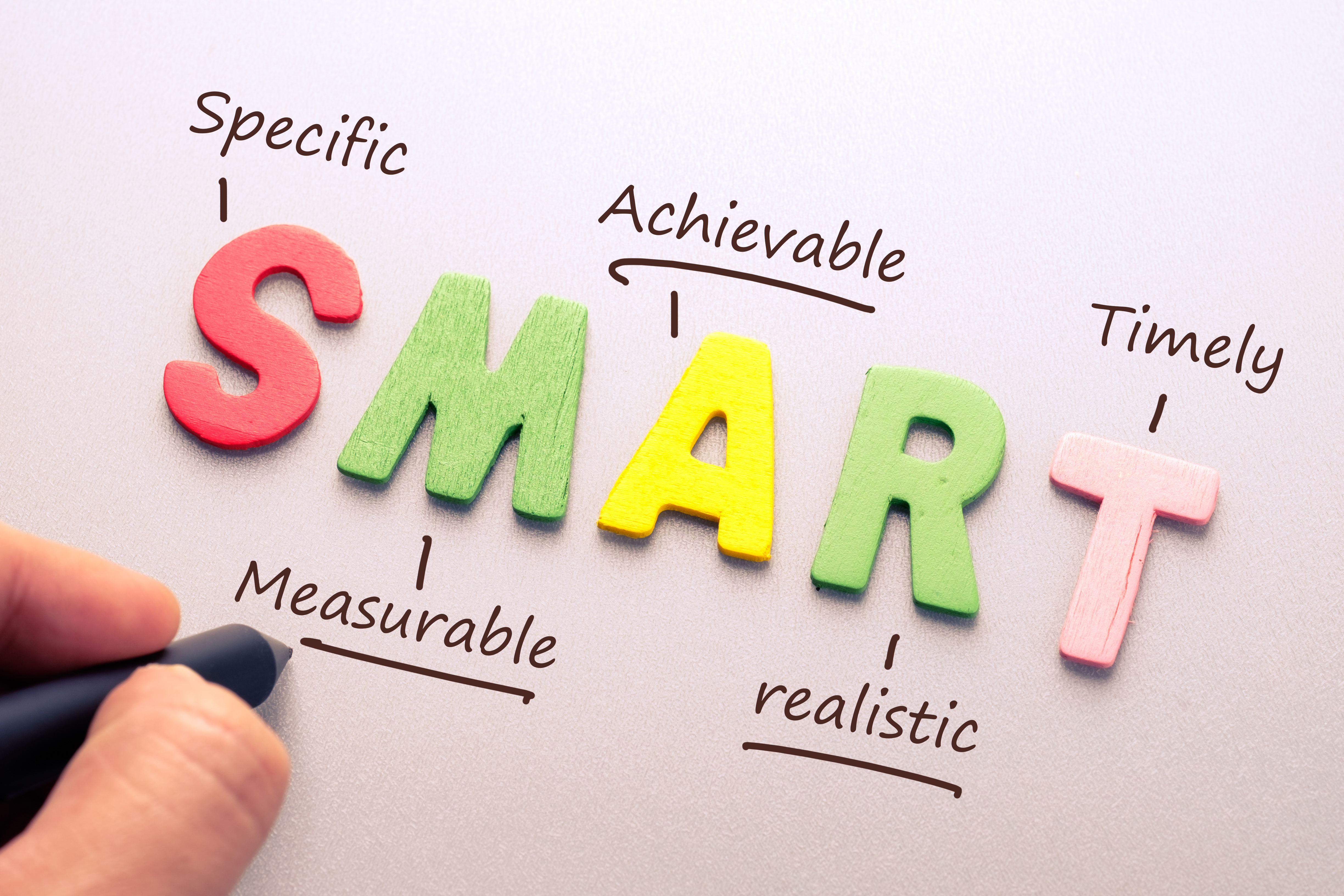Do you know what you want to achieve in business? Set the right goals
In life and in business, it pays to have a strategy to achieve significant success. If you formulate it correctly, your business will move in the right direction.
However, getting clear on what to achieve, when and how is not easy. Have you also had the experience of not being able to evaluate your goal over time because it was ambiguous or even unattainable? How to set your goals correctly?
 Set a goal in line with the vision of your business
Set a goal in line with the vision of your business
The vision is the “ultimate goal” of your business and determines its strategic direction. Therefore, everything – your mission, values, strategies to achieve your goals and the goals themselves with action plans on a daily, weekly and monthly basis – should work towards its fulfilment.

When setting a goal, therefore, answer an important question:
Does this goal support the fulfillment of my vision?
If it supports your vision and fits within it, you can go into its deeper elaboration and achievement with confidence.
Define your goal using the SMART method
What does SMART mean? Smart, but you probably know that. 🙂 In this case, it’s an acronym where each letter characterizes what criteria your goal should meet. It should be specific, measurable, achievable, relevant and time-bound. With this simple method, you can set not only business goals, but also project, marketing or personal goals.

- S – specific – give the goal a specific dimension with specific steps to achieve it. When specifying, help yourself by answering questions:
- What exactly do I want to achieve?
- Why and how do I want to achieve it?
- Who will be involved in achieving the goal?
- M – measurable – add numbers to the goal. Help yourself by answering the questions:
- How much is to be done?
- How can I measure or check the achievement of the goal?
- A – achievable – set the goal realistically. It is this characteristic of a goal that many people have trouble with, as they get carried away with dreamlike ambitions. Remember, therefore, that your goal must be realistic and commensurate with your capabilities. However, it should also be a little ambitious to push you forward and beyond your current capabilities. Help yourself by answering the questions:
-
- What specific steps do I need to take and in what order to achieve my goal?
- What obstacles might arise?
- Is the goal achievable by those in charge?
- Is the goal achievable in the timeframe or quantity?
- R – Relevant – Defend the benefits of the goal. Achieving it should help you in fulfilling your vision, mission, project or task. By making your goal relevant, you will be able to prioritize it against other goals and, if necessary, move it forward. Think about the questions:
- What will achieving it change?
- Is it worth investing my time and money in it?
- T – time-based, trackable – add timing to the goal. Build on experience and don’t get caught up in the vision of a quick achievement. Help yourself by answering questions:
- Is my goal short-term or long-term?
- If long-term, what are the milestones and when will I reach them?
- When will I be able to achieve my goal?
Elaborate the goal in SMARTER form
The SMART method is often extended in practice to include two more letters, namely E and R. According to its principles, the goal should also be stimulating and recorded.

- E – exciting – make sure you really want to achieve the goal. It is your passion that will be the biggest driving force in achieving it, so think about the questions:
- Why is it good to go after this goal?
- Why do I want to achieve it?
- Is the idea of achieving this goal motivating and exciting for me?
- R – recorded – record the goal. Don’t just keep the goal in your head. Write it down – ideally somewhere where you can record your progress towards it on a regular basis. It is also helpful and very motivating to talk about your goal.
In the SMARTER method, you may also come across other meanings for the letters E and R. For example, it can be a combination of:
- E – evaluate and R – revise,
- E – ethical and R – recorded.
It is therefore advisable to choose the methodology that will be most useful to you and your business in setting your objectives.

One final piece of advice. Remember, it is not only the joy of reaching the goal that is important, but also the joy of the journey you take to get there. So celebrate every single step you take towards your goal. This is what motivates you to perform even better. 🙂
